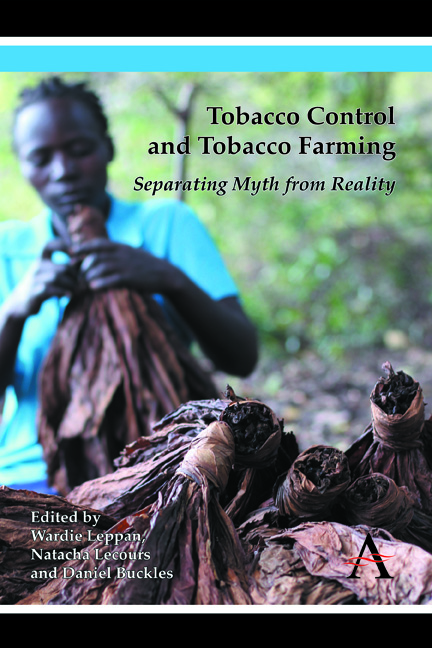Book contents
- Frontmatter
- Contents
- List of Figures, Tables and Photographs
- Foreword
- Preface
- Introduction: Separating Myth from Reality
- Section One The Determinants of Tobacco Leaf Demand
- Section Two Tobacco-Farming Conditions in Low- and Middle-Income Countries
- Section Three Economically Sustainable Alternatives to Tobacco
- Conclusion: Reframing the Debate on Tobacco Control and Tobacco Farming
- Annex: A Policy Brief on Tobacco Control and Tobacco Farming
- Contributors
Section Three - Economically Sustainable Alternatives to Tobacco
Published online by Cambridge University Press: 05 November 2014
- Frontmatter
- Contents
- List of Figures, Tables and Photographs
- Foreword
- Preface
- Introduction: Separating Myth from Reality
- Section One The Determinants of Tobacco Leaf Demand
- Section Two Tobacco-Farming Conditions in Low- and Middle-Income Countries
- Section Three Economically Sustainable Alternatives to Tobacco
- Conclusion: Reframing the Debate on Tobacco Control and Tobacco Farming
- Annex: A Policy Brief on Tobacco Control and Tobacco Farming
- Contributors
Summary
Tobacco Industry Myth: There are currently no economically sustainable alternatives to tobacco farming for small-scale farmers, particularly in low- and middle-income countries.
Research Findings:
• Where support for smallholder agriculture was nonexistent or had been reduced (particularly as a result of structural adjustment programs), many farmers felt they had little choice but to turn to tobacco where the industry provides the missing market infrastructure and extension services needed.
• Despite this challenge, as the case studies here show, many other crops, crop combinations, farming systems and livelihood strategies offer better opportunities for farmers.
• Although the current generation of tobacco farmers will not be affected by tobacco-control measures, given the harsh nature of the work, it will be important for governments to help farmers transition to alternative crops.
• The transition will require a national vision for sustainable rural development. Such a vision should include support for market infrastructure and extension services for alternative crops that were previously missing. Furthermore, access to public financing for tobacco-farming transitions is justified, and can be financed in part through domestic taxes on the consumption of tobacco and, where it exists, the removal of public funding for tobacco cultivation.
• The active participation of farmers and other stakeholders in the development of new options is key to success.
- Type
- Chapter
- Information
- Tobacco Control and Tobacco FarmingSeparating Myth from Reality, pp. 139 - 140Publisher: Anthem PressPrint publication year: 2014



